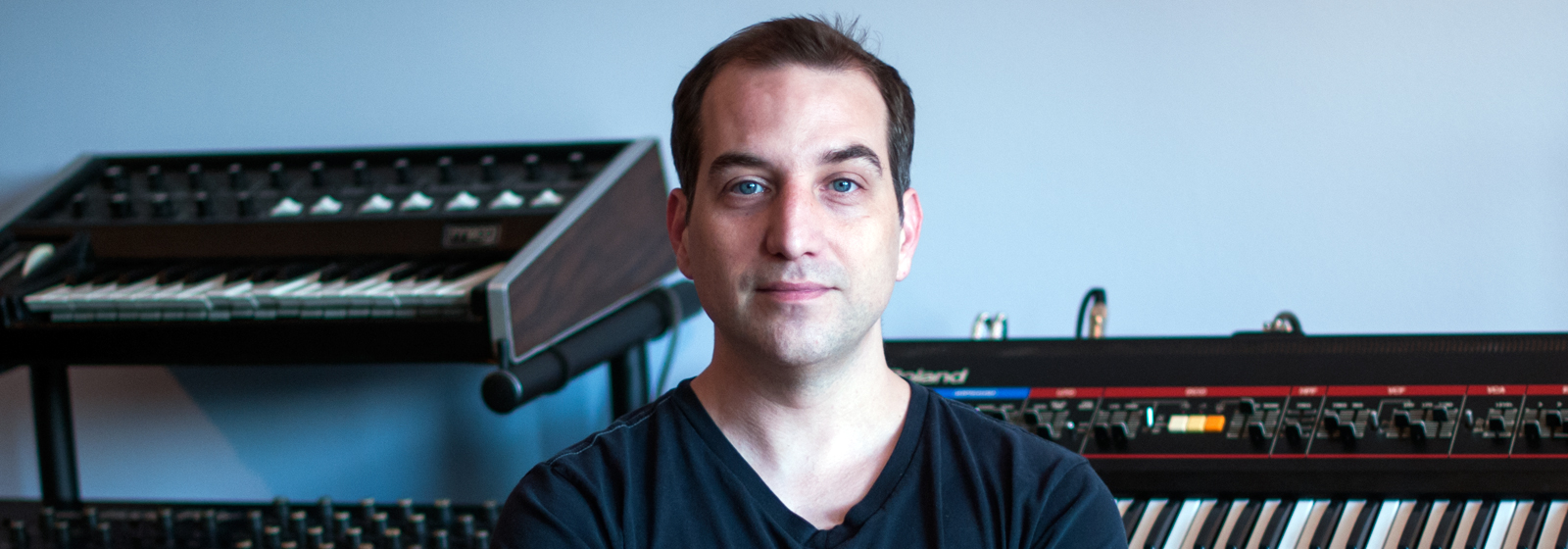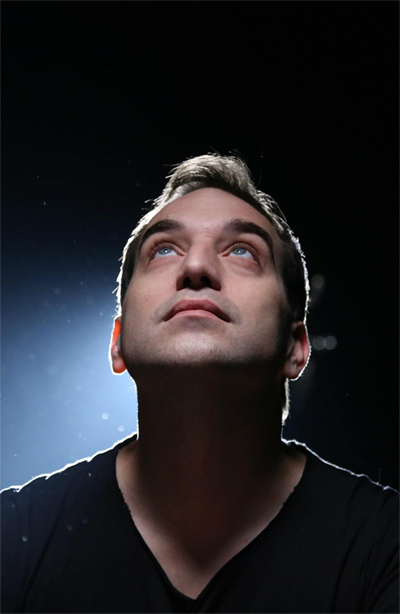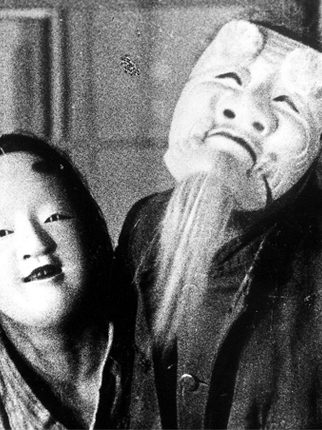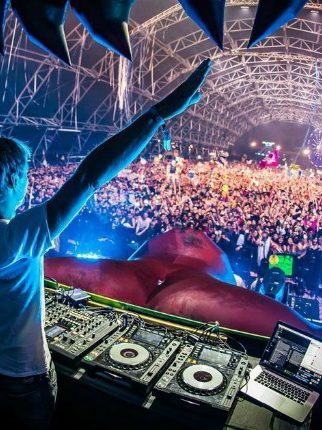Everyone is Invited to Marc Houle’s Cola Party

The only act on Richie Hawtin’s minimal techno label, Minus, to have a track championed by trance megastar Tiësto, Marc Houle left the house of Hawtin in 2011 to start his own imprint—Items & Things—which he runs with fellow Minus alumni Magda and Troy Pierce. Cola Party, his second album on I&T, proves that the Detroit-bred, Berlin-based performer has fully come into his own, delivering a package of techno tunes with a sense of playfulness only hinted at on his previous records. The non sequitur name is just the start.
How did you come up with the album title?
I went through every song, thinking that should be the album title. My dad said, ”Hot Sauce!” My brother thought Cola Party was the best name. I trust him more than anyone; plus, he’s doing the cover, so I trust that he has a vision.
I think when people on the dancefloor hear stupid lyrics, they know it’s party time. If it’s serious and emotional, maybe that’s good for home listening.
On “Raybans in Bahrain,” there are actual lyrics that somehow make sense while talking about wearing Ray Bans in Bahrain.
Usually I think I need a vocal element, and then something just pops into my head. It’s not something I wrote in a notebook beforehand. It was just something spontaneous, which is why they’re so shallow but still fun.
Do you ever have the urge to write deeper lyrics?
No. When we grew up in Detroit, all the music we listened to were stupid lyrics like “jit jit jit jit” or “time for the percolator.” It was never something deep. I think when people on the dancefloor hear stupid lyrics, they know it’s party time. If it’s serious and emotional, maybe that’s good for home listening, but when you’re partying you don’t want to be listening to lyrics and meanings. You just want samples and keywords. Buzzwords. Is that the word?
Hashtags!
Cola Party! When you say it out loud, it’s kinda ridiculous.
Sounds like it could be a drug reference.
Um no, no drugs at all. It could be a lot of other references. In Spanish, “cola” means something else.
What does it mean?
I don’t know if I should say. People can find out what it means.
This is the second album on Items & Things?
Yes. Undercover was the first one. That was more New Wave-y. This one doesn’t have a theme.
You’ve been doing the label for three years. Do you feel more confident?
As time goes on, you realize, “Hey, it worked!” Leaving Minus—that could have been [the end]. I could have gone into obscurity and had to get a job. But after a year, two years, it’s working fine.
Did you feel an initial dip when you left Minus?
There was a lot of press for the first time. For me, the press was always Minus, Minus, Minus, Rich, Minus artists. It was never Marc Houle. There was never an article written about me before. Initially there was attention, but we really had to push hard to keep the momentum up, ‘cause that’s when it was sink or swim.
When you were at Minus, every release had to get Rich’s approval. Do you have that now with Magda and Troy?
I’m sure if they had veto power, a lot of the tracks on this album probably wouldn’t have made it. There are a lot of tracks that they do like. Magda loves playing “I Don’t Want to Know About You,” but a lot of the other tracks are too hard or too tough for her style. We have a mutual respect and understanding where if I feel strongly about it, then we put it out.
Kevin McHugh [Ambivalent] recently did an interview saying he left Minus because Rich kept saying no to his music.
When I was making music on Minus, Rich was saying no a lot to me and I would get so frustrated. I’d freak out for a couple days, then I’d go back into the studio and make something different and it’s like, “Yeah, he knew.”
Do you think he knew better or you just…
After a while, you realize that Rich does know better. You argue with yourself—“he doesn’t know, he’s on tour all the time, he’s lost touch”—but then you realize in the end, he does know. He is an expert in his field.
At the same time, one can argue that during the era of Minus that you guys defined, those were your records coming out. Rich wasn’t making music.
All those things go through your mind at one time or another, like when you’re hungover on a plane. Ten minutes later, you realize all the other stuff that’s happened, and you think, “I’m very lucky.”
Do you spend a lot of time partying before and after your sets?
Ninety-five percent of the time, I’m the last one to leave the club. It’s my job to be the party guy, so I’m the party guy. The most fun times you have is when most people have left and it’s just you, the promoters, some fans, and some other DJs. Everyone you meet at the end of the night is in the same world as you. Music is their life. The people for whom going out is fun but not really that important—they’re gone already. So the people left at the end of the night are the hard-core partiers, and those are the most fun people.
That sounds great but tiring. Do you ever think maybe you are ready to stop?
I can’t stop now. This is the most fun for me. I love doing this. I can imagine myself waking up one day and saying, “I’m tired of this. I’ve been partying for eight straight years. I need, like, a break.” But right now, I’m still at the middle of the party, not the end.
Follow Marc Houle on Faceook | Twitter





